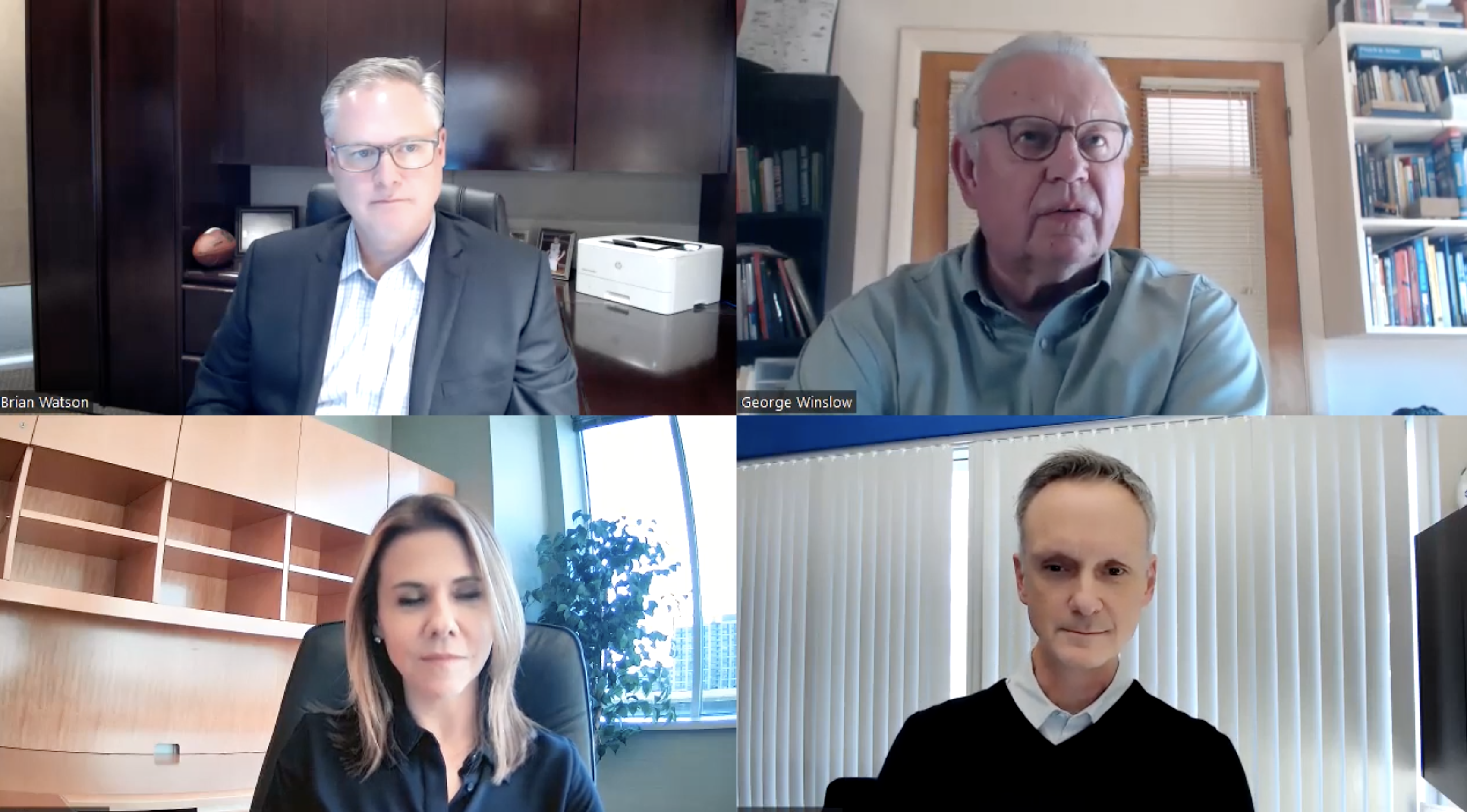TV Tech Summit: Reinventing Local News in Detroit
CBS executives discuss their ambitious plans for CBS News Detroit

The professional video industry's #1 source for news, trends and product and tech information. Sign up below.
You are now subscribed
Your newsletter sign-up was successful
During the fall TV Tech Summit, CBS executives provided a sneak peek at the new news operation, CBS News Detroit, that is using a variety of new technologies to reinvent the way local news is approached and produced.
CBS News Detroit is the hyper-local streaming and broadcast news service that is being built from scratch by CBS News and Stations. It will be launched in the upcoming weeks by WWJ-TV (CBS 62) and WKBD-TV (CW50), the CBS-owned stations in Detroit.
The creation of CBS News Detroit marks the first time WWJ will have its own full-scale local news department since becoming a CBS Television Network-owned station in 1995.
“CBS News Detroit really is the answer to the question: What do you do if you could build a newsroom from scratch?” said Adrienne Roark, president, CBS Stations, who oversees CBS’s owned and operated stations in the eastern half of the country and has been heavily involved in our Detroit initiative.
As part of a station group wide initiative to rethink their local news operations, Roark said they’d been focused on three principles, content, culture and communities to tell stories that “really impact our communities,” and to “really focus on the modernization of what we do” with “continuous learning, training and investing in technology.”
“Community is really…the heart and soul, if you will of what we're doing at CBS News. Detroit,” she said. “It's turning our neighborhoods into newsrooms. And we can say that because our crews and our teams and our journalists are not just outside observers and informers, they are deeply [involved] in the communities…We reflect our communities both on air and off. And then we also operationalize for truly neighborhood newsroom type coverage.”
One key component of this strategy is using technologies to embed journalists in local communities and allow them to be much more flexible, mobile and efficient in the way they produce stories.
The professional video industry's #1 source for news, trends and product and tech information. Sign up below.
“In converting those neighborhoods into newsrooms, our plan there is to go with a team of [multimedia journalists] embedded in their communities,” explained Brian Watson, president and general manager, CBS Detroit. “However, unlike the traditional model of getting an assignment for the desk and criss-crossing the market to go record a story, our [journalists] are actually going to be assigned geographic areas where they work solely.”
They have also embraced the concept of a “working newsroom,” he continued.
“We are not going with the traditional studio down the hall from the newsroom,” he explained. “We're going with a working newsroom concept which means the whole news department is in the one room together…to provide the sense of authenticity of the news.”
“Gone are the days of maybe scripts being polished down the hall by producers and executive producers and then carried down the hall and ran on a teleprompter” in a posh studio, he said. Their working newsroom will provide a setting “where everybody can be seen within a shot of the camera. We have the ability to swing around or use fixed camera positions to maybe go to the assignment desk to have the anchor talk directly with an assignment editor about a story that might be coming in at that time…So the viewer can see the news happening in real time being conveyed in real time.”
To accomplish this, “they have to be armed with the right technology,” Watson said, adding that their multimedia journalists “are going to have remote editing studios in the SUVs that each one is assigned to….They'll have the technology be able to do full packages from the field and send us back to the newsroom….It's about keeping them in the field more often and not having them to come into the station into the newsroom to finalize their packages.”
Streaming will be a core part of the local news operation, which is expected to produce about 137 hours a week of streaming news.
“The way we're looking at it is that we're a streaming entity that happens to also simulcast on the linear,” Watson said. “You know, everything that we're doing from a technological standpoint is unified. We're not a linear operation that added on the streaming capability…[with] completely separate technology [and]....staff. That's not the case here. We are essentially a streaming operation that also produces linear broadcasts.”
Paul Pytlowany, vice president and news director at CBS Detroit stressed that they developed the technology used in the mobile news gathering SUVs with a great deal of input from their multimedia journalists.
Based on their input “we decided to remove the front seat and have this mobile editing station embedded within the vehicle,” Pytlowany explained. “They also have two cameras in the vehicle, one facing forward, one facing out the talent. And there's also a mini switcher within this editing deck that allows the MSJ to switch between different cameras. Each of the SUVs will be outfitted with LiveU 600s, for cellular based transmission [that]...allows them to go live anywhere.”
“In addition to all the SUVs that we'll have deployed onto the field, we also have two weather trackers that are really filled to the hilt with equipment for weather gathering data,” he added. There is even a slush cam in the wheel well and a sensor at the bottom of the vehicle that measures the temperature of the road.
“What's great about our new startup, if you will, in Detroit is that it's such an innovative model that it has become a giant, best practice blueprint that we can take and then share with all of the stations,” Roark concluded.
To view this panel and other keynotes and sessions held during the Nov. 17 TV Tech Summit, simply register for the event here.
George Winslow is the senior content producer for TV Tech. He has written about the television, media and technology industries for nearly 30 years for such publications as Broadcasting & Cable, Multichannel News and TV Tech. Over the years, he has edited a number of magazines, including Multichannel News International and World Screen, and moderated panels at such major industry events as NAB and MIP TV. He has published two books and dozens of encyclopedia articles on such subjects as the media, New York City history and economics.

